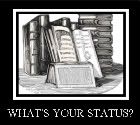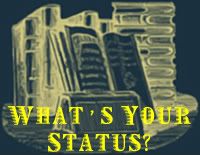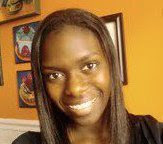This book counts toward the following challenge:

-------------------------------------------

Milkweed
By Jerry Spinelli
Publisher: Laurel-Leaf, 2003
208 pages, paperback
Date finished: 5/1/2011
Genres: Young Adult, Historical Fiction, Coming of Age, Action
He’s a boy called Jew. Gypsy. Stopthief. Runt. Happy. Fast. Filthy son of Abraham.
He’s a boy who lives in the streets of Warsaw. He’s a boy who steals food for himself and the other orphans. He’s a boy who believes in bread, and mothers, and angels. He’s a boy who wants to be a Nazi some day, with tall shiny jackboots and a gleaming Eagle hat of his own. Until the day that suddenly makes him change his mind. And when the trains come to empty the Jews from the ghetto of the damned, he’s a boy who realizes it’s safest of all to be nobody.
Newbery Medalist Jerry Spinelli takes us to one of the most devastating settings imaginable—Nazi-occupied Warsaw of World War II—and tells a tale of heartbreak, hope, and survival through the bright eyes of a young orphan.
~from goodreads.com~
~First Line: I am running."
~Last Line: "I was. Now I am. I am . . . Poppynoodle."
Review: This was the first historical fiction novel I'd read since
Zan-Gah #2, so I was hoping that it would be super-good and interesting. Especially since it is set during World War 2; I wasn't let down at all.
The main character, Misha as we later learn to call him, is tiny and can run fast; these two characteristics are the major factors as to why he's so good at smuggling food to eat. Jewish men with long beards were dressed in allblack and were demanded to clean the streets with their beards while the soliders, whom Misha calls Jackboots, laugh at them.
Times are hard for everyone, especially Jews, and for a period of time, Misha, Uri, and the other boys who smuggle food were joyous. They lived in a stable that had an entire pile of food that they never thought would disappear. Soon all the Jews and the boys are moved to what becomes knwon as the ghetto. The Flops, Jewish soldiers that are in control of the ghetto, hang smugglers when they catch them. If you don't consider this a hard time for the Jewish population, you should DEFINITELY read this novel (and the
Diary of Anne Frank, but that's another story for another time).
This really was an amazing story of a boy in Warsaw, Germany. It puts you in the place od someone who had to live that way. Spinelli unquestionably portrayed part of Europe's struggle very well. Not only were there wonderful characters, but there was a little action, lots of emotions. I loved reading what Misha went through, and not only because of the story elements, but because it's part of the world's history. We should all know what our ancestors had to go through.




Quotes from the book:
"Several of the men left the line and headed toward us, shouting. We flung our cigarettes and ran. My leash flapped wildly, slapping tombstones. Suddenly Kuba stopped. He turned his back to the men, dropped his pants, and bent over and gave them a good, long look. The running men shouted louder, but no louder than we laughed."
" 'Don't worry, the ghetto is for you too. I hear they rake Gypsies. And cripples. And crazies. If you want to be safe, be a cockroach.' "
"I slept in the hay and plated with the mice in the barn. One was my favorite. I shared my turnips with it. I called it Janina. I taught it to run up my arm and stand on my head. Then a cat ate it."
"No one hired me to sell the best products. The problems were my size (I had stopped growing at five feet, one inch), my accent, and my missing ear, which now looked like a clump of cauliflower. I couldn't blame them. Who would let such a galoot in the door? 'Good day, madam. Can I interest you in a nice vacuum cleaner?' Forget it."
 Alrighty; since my dad is making me do my chores and earn the money I get to spend every month, I don't have a lot of new e-books.
Alrighty; since my dad is making me do my chores and earn the money I get to spend every month, I don't have a lot of new e-books.









 This meme is hosted weekly by MizB @
This meme is hosted weekly by MizB @ 































